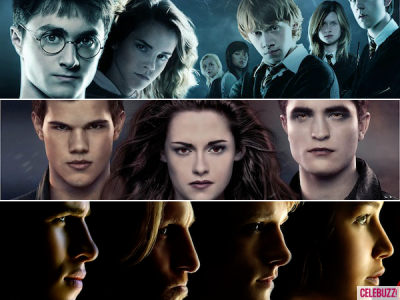Is the Golden Age of Fantasy and Sci-Fi Movies Over?

Image courtesy of pentucketnews.com
By Caroline Morris
Culture goes through golden ages: Broadway, hip-hop, Hollywood. It seems that the fantasy and science fiction genre also had a golden age that started in the late 1990s.
Think back to the late 90s and early 2000s. In 1997, the now beloved and ubiquitous Harry Potter and the Sorcerer’s Stone by J.K. Rowling hit bookshelves everywhere. By 2001, the movie adaptation of the first book was in theaters, alongside the iconic The Lord of the Rings: The Fellowship of The Ring. These series-turned-movies were soon followed by the Twilight Saga, The Hunger Games, and even the less successful Divergent Trilogy.
But now, in the 2020s, it appears that the influx of fantasy and science fiction movies is dying down, with the exceptions of Dune (2021) and the Star Wars sequel trilogy in the late 10s. These series, however, have earlier roots that transcend the assumed golden age of their genre.
I would argue, however, that the sci-fi and fantasy movie industry is dying, but not the golden age of the genre itself. Rather, it is transitioning.
The market for fantasy and science fiction content remains lucrative. The book market is arguably oversaturated in this genre, yet the demand for fantasy and sci-fi remains, earning over $500 million per year.
The issue is the transition from the page to the silver screen. Fewer sci-fi, fantasy, and even dystopian movies are being made. It’s because they’re being made into TV shows.
Over the past decade, sci-fi and fantasy content has been transitioning into television rather than film. Game of Thrones seems to be the originator of this movement. As a television series rather than a movie or series of movies, the fantasy world which George R.R. Martin created was given more space to be fleshed out and includes details that often get left out of movies that only get about 120 minutes of screen time.
This trend has only grown. Stranger Things, a sci-fi series on Netflix, has become immensely popular. The Handmaid’s Tale, available on Hulu, is an adaptation of a classic dystopian piece of literature by the same name that has received high acclaim and success. Two popular fantasy series, Shadow and Bone and Six of Crows, were recently combined and released on Netflix in 2021, and the New York Times bestselling series A Court of Thorns and Roses is set to be made into a Hulu series.
Not only are new works and adaptations being made for TV, but previously established movie franchises are also following suit. Star Wars has taken to the small screen through their program, The Mandalorian. To be fair, Star Wars has previously created television shows, but they have not been nearly as culturally dominant as Baby Yoda. Even the Marvel Cinematic Universe has expanded beyond cinema, continuing their universe’s legacy through TV shows like Wandavision and Loki.
There is always going to be a market for this genre. Elements of science fiction, fantasy, the supernatural, and dystopia have always been present in even the highest caliber literature. To name a few examples: Frankenstein, Jane Eyre, A Christmas Carol, Beloved, Wuthering Heights, The Picture of Dorian Gray, and The Odyssey.
The element of the fantastic has an irresistible draw. The mode of consumption is what changes.
So, no, the golden age of science fiction and fantasy has not ended; it has evolved into, as it were, its second season.





